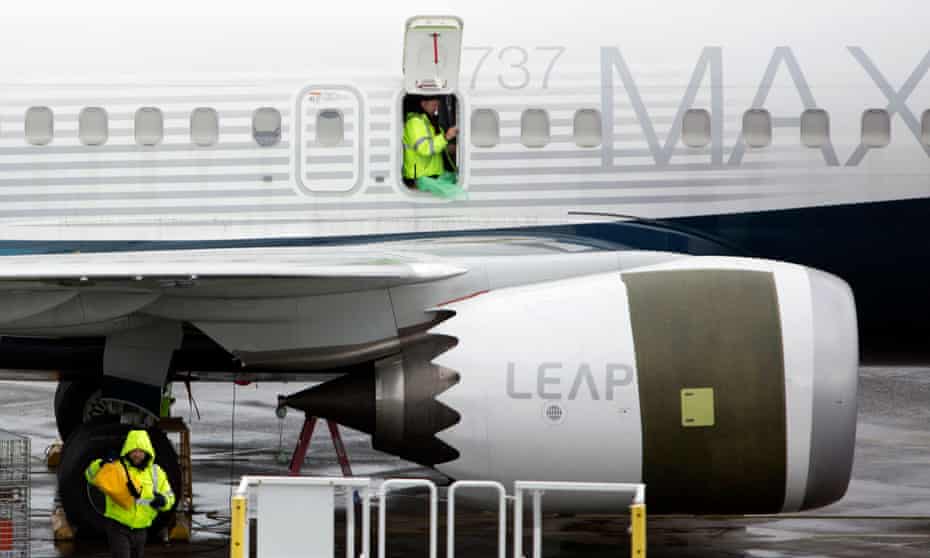A Boeing pilot involved in testing the 737 Max jetliner was indicted on Thursday by a federal grand jury on charges of deceiving safety regulators who were evaluating the plane, which was later involved in two deadly crashes.
The indictment accuses Mark A Forkner of giving the Federal Aviation Administration false and incomplete information about an automated flight-control system that played a role in the crashes, which killed 346 people.
Prosecutors said that because of Forkner’s “alleged deception”, the system was not mentioned in key FAA documents, pilot manuals or pilot-training material supplied to airlines.
The flight-control system automatically pushed down the noses of Max jets that crashed in 2018 in Indonesia, and 2019 in Ethiopia. The pilots tried unsuccessfully to regain control, but both planes went into nosedives minutes after taking off.
Most pilots were unaware of the system, called the maneuvering characteristics augmentation system, until after the first crash.
Forkner, 49, was charged with two counts of fraud involving aircraft parts in interstate commerce and four counts of wire fraud. Federal prosecutors said he was expected to make his first appearance in court on Friday in Fort Worth, Texas. If convicted on all counts, he could face a sentence of up to 100 years in prison.
Boeing designed the Max to be a more fuel-efficient version of the venerable 737 that could compete with a plane developed by the company’s European rival Airbus. The flight-control system was meant to make the Max fly like previous 737s despite a tendency for the nose to tilt upward under some circumstances.
Congressional investigators have suggested that Forkner and Boeing downplayed the power of the system to avoid a requirement that pilots undergo extensive and expensive retraining, which would increase airlines’ costs to operate the plane.
Chad Meacham, acting US attorney for the northern district of Texas, said Forkner had tried to save Boeing money by withholding “critical information” from regulators.
“His callous choice to mislead the FAA hampered the agency’s ability to protect the flying public and left pilots in the lurch, lacking information about certain 737 Max flight controls,” Meacham said in a statement.
Chicago-based Boeing agreed to a $2.5bn settlement to end a justice department criminal investigation into the company’s actions. Boeing said in the settlement last year that employees had misled regulators about the safety of the Max. The settlement included a fine, money for airlines that bought the plane and compensation for families of the passengers who died in the crashes.
Dozens of families of passengers are suing Boeing in federal court in Chicago.





